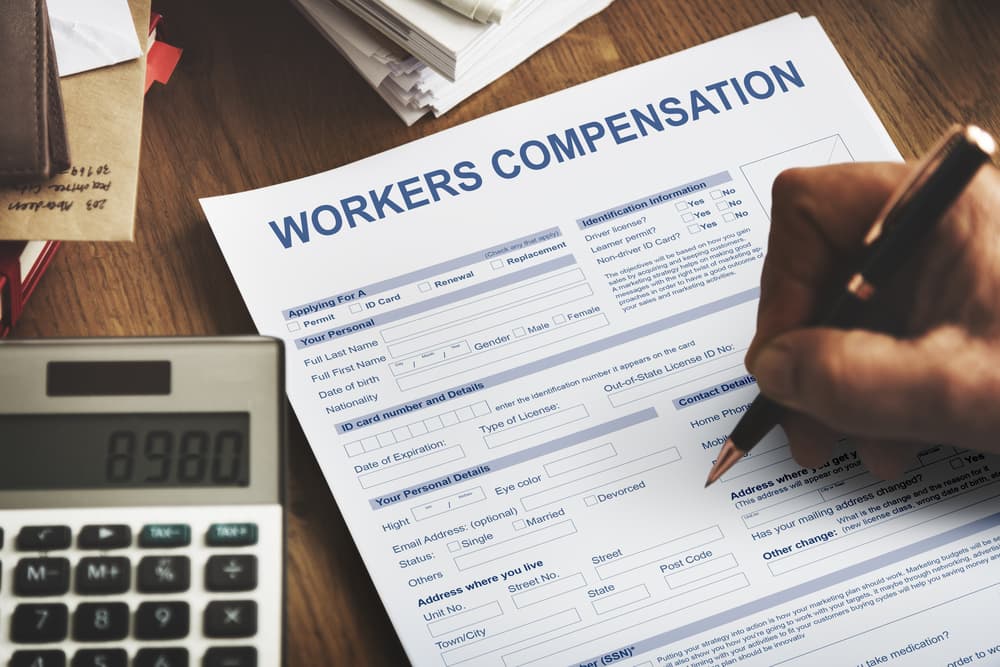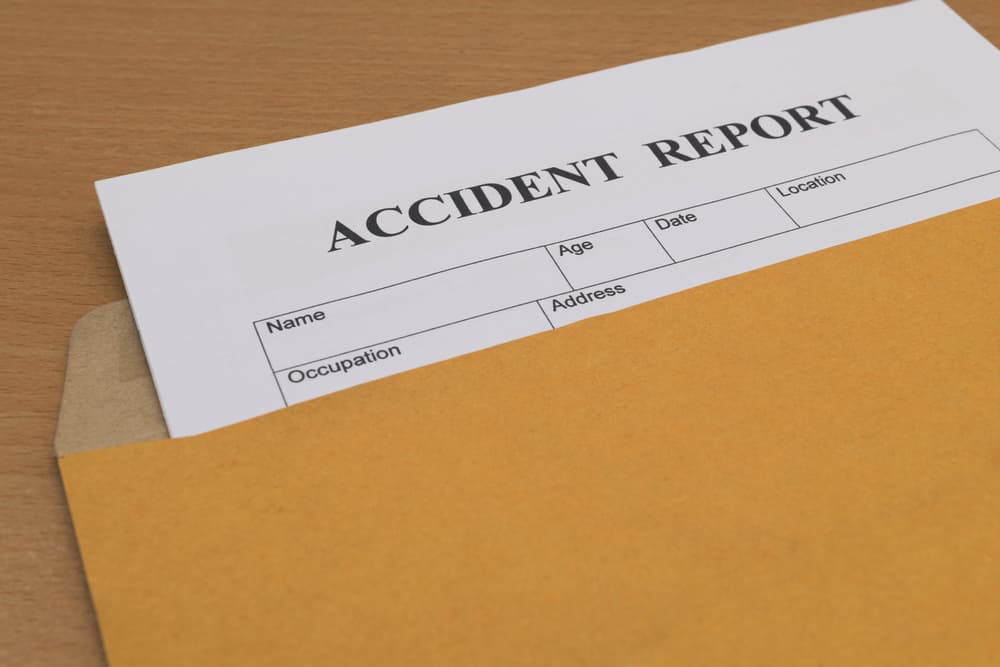
When someone suffers an injury on the job, one of the first things they’ll typically want to know is, “How long does a workers’ compensation claim take?” This is a natural question because, as we all know, injuries can cost you in many ways. You likely need medical care, and might miss significant work time while recovering.
The following is a look at some factors that determine the timeline for the typical claim. Remember, however, that each work injury and resulting claim is different.
If you’re dealing with your state’s workers’ comp program and having difficulty, a skilled workers’ compensation attorney can often speed up the process and ensure you get the money you deserve. Hiring an attorney can also benefit you in many other ways throughout the process.
Understanding the Timeline of Workers' Compensation Claims
The timeline for processing a workers' compensation claim can vary depending on several factors, including the case's complexity, the injury's severity, and any disputes arising during the process. However, injured workers can expect general milestones and timeframes when pursuing a claim.
Reporting the Injury

The first step is to report the injury to your employer immediately to avoid delays in the claim process. The best practice is to let your employer know as soon as possible after an accident causes an injury, or you discover you have developed a work-related injury due to repetitive movements, overexertion, or similar issues.
If you need emergency treatment following an accident, your physical safety and health come first. Seek emergency care and notify your employer the next chance you get.
If you report the injury within 14 days, your employer generally cannot deny your claim by arguing you didn’t give notice on time. If you file after two weeks, the employer may have grounds to deny the claim for late notice. An attorney can tell you more.
Filing the Claim
After reporting the injury, your employer, you, or your attorney must file a workers' compensation claim with the proper party. This typically involves completing the necessary forms and providing documentation of the injury and medical treatment to an insurance company or workers’ compensation board in your state.
You’ll likely have to undergo a medical exam by a professional chosen by the insurer or your employer. Never delay attending this exam. Although seeing a doctor you did not choose can be frustrating, a workers’ compensation attorney can prepare you for what to expect during this appointment.
Claim Review and Investigation
Once you file the claim, the employer's insurance company will investigate to determine the claim’s validity. The investigation may involve reviewing medical records, gathering witness statements, and assessing the injury's circumstances.
The insurance company might request additional information, which can be daunting when you have medical appointments and need to rest due to your injuries.
If you hire a workers’ comp lawyer, they can ensure the insurance company has all the information needed to review your claim and assess your injuries.
Benefit Determination
After completing their investigation, the insurer will determine whether to accept or deny the claim. If they accept the claim, you’ll begin receiving benefits. These benefits may include medical expenses, income replacement, and vocational rehabilitation services.
Sometimes, insurers will deny claims.
Common reasons for denial include claiming:
- Your injury did not occur at work;
- You claimed a pre-existing injury;
- You were intoxicated when the injury happened; or
- You did not receive treatment from the necessary providers
Dispute Resolution
In cases where the insurer denies or disputes the claim, you may need to pursue alternative dispute resolution methods, such as mediation or arbitration. Your workers’ comp attorney can guide you through these processes.
If these efforts fail to resolve the dispute, the case may proceed to a formal hearing before an administrative law judge. Your lawyer can represent you at all hearings regarding your claim.
The Appeals Process
If either party disagrees with the judge's decision, they can appeal to a Workers' Compensation Court of Appeals or a similar body in your state. The Appeals Court will review the case and issue a final decision, which can be further appealed to an even higher court if necessary. The appeals process is highly complicated, so you need an experienced attorney handling every step of your case. If your appeal is successful, you can begin receiving benefits.
As you can see, the timeline of a case depends on when the insurance company approves your benefits.
How a Workers’ Compensation Attorney Can Make Things Easier from the Start

If you’re trying to recover from an injury, you might find dealing with all the hassles of the workers’ comp system challenging and overwhelming.
Attorneys with experience in workers' compensation law can take away the stress and work to ensure you get the benefits you’re entitled to. They can also often increase the chances that you begin receiving benefits earlier in the process.
Here’s why a lawyer can help:
- Legal experience: Attorneys have in-depth knowledge of state workers' compensation laws and regulations. A lawyer can guide you through the claims process, ensuring you complete all necessary paperwork accurately, and submit it on time.
- Case evaluation: A lawyer can assess the merits of a workers' compensation claim and identify any potential challenges or obstacles that may arise. By thoroughly evaluating the case upfront, attorneys can develop a strategic plan to expedite the process and maximize the chances of a successful outcome.
- Negotiation skills: In many cases, disputes can be resolved through negotiation between your attorney and the insurance company. A lawyer can negotiate a fair settlement compensating you for your medical expenses, lost income, and other damages.
- Representation in hearings: Legal representation can be invaluable if a workers' compensation claim proceeds to a formal hearing. An attorney can present evidence, cross-examine witnesses, and work to persuade the administrative law judge to rule in your favor.
- Appeals process: If the court denies your claim, your lawyer can handle the appeals process. They can prepare and submit the necessary paperwork, present arguments before the Workers' Compensation Court of Appeals, and pursue further appeals if necessary.
Ensuring Fair Compensation
Unfortunately, you might encounter challenges obtaining the compensation you deserve due to disputes with the insurance company, or other obstacles in the claims process. In these situations, a lawyer can fight for your rights. These are a few of the ways they'll do it:
Investigation and Evidence Gathering
Attorneys can investigate to gather additional evidence to support your claim. They can also challenge any inaccurate or biased information the insurance company provides.
Expert Testimony
A lawyer can speak with medical experts, vocational specialists, and other professionals to provide expert testimony supporting your claim. This can be particularly important in cases where the opposition disputes the extent of your injury, or the need for ongoing medical treatment.
Giving You a Fighting Chance
Having legal representation can level the playing field when dealing with insurance companies and their legal teams. An attorney can assert your rights, challenge unfair practices, and pursue legal remedies to ensure you receive the compensation you deserve.
Maximizing Benefits
Attorneys can help maximize your benefits by identifying all available sources of compensation, such as Social Security Disability Insurance (SSDI) or third-party liability claims.
Advocacy and Support
Most importantly, a skilled lawyer can provide invaluable advocacy and support throughout the claims process. They’ll serve as a trusted advisor, guiding you through the complications of the legal system and fighting tirelessly to protect your rights and interests.
Do You Ever Have to Revisit a Workers' Compensation Claim?
Once your claim is granted, it's natural to think everything is resolved. However, in some cases, you may need to revisit your workers' compensation claim, and the timeline of the process continues on. Here are a few situations where you might have to do so.
First, if your condition worsens over time or you develop new symptoms related to your work injury or illness, you may need to revisit your claim. Always regularly monitor your health and seek medical attention if you notice any changes.
Remember, your workers' compensation benefits should cover your medical treatments and provide income replacement if you cannot work for the life of the work injury or illness. Revisiting your claim ensures you receive the necessary support as your condition evolves.
Additionally, if you encounter difficulties with your employer or insurance company regarding the payment of benefits, revisiting your workers' compensation claim may be necessary. This can include issues such as delayed or denied payments, disputes over the extent of your disability, or disagreements about appropriate medical treatment.
Having a workers’ compensation attorney allows you to properly address these challenges and protect your rights as an injured worker.
What if the Workers' Comp Insurer Tries to Cut Off Your Benefits Too Early?
You may have been relieved to start receiving workers' compensation benefits to cover medical expenses and lost income. However, what happens if the workers' comp insurer tries to terminate or reduce your benefits prematurely?
If the insurance company attempts to cut off your benefits before you fully recover from your condition, seek legal guidance from a workers’ comp attorney immediately.
They can present evidence to the insurance company that you are not healed, you still need continuing treatment, or you still need time off work due to your condition.
Retaining an experienced workers' compensation attorney can make all the difference in ensuring you continue to receive the benefits you deserve.
What if You Receive a Lump-Sum Settlement Offer From the Workers' Comp Insurer?

Sometimes, you might be receiving workers’ compensation benefits for some time, and it becomes clear that your condition is disabling. You do not think you can return to work anytime soon and earn what you once did.
In such cases, an insurance company may offer a lump-sum settlement instead of continuing to pay monthly benefits. While the offer may seem tempting, consulting an attorney before accepting any settlement is critical.
Always remember that the workers' comp insurer is not on your side. Their primary goal is to minimize the amount they pay out in benefits. So, if they're offering you a lump-sum settlement, it's likely because they believe it will save them money in the long run.
Also, accepting a lump-sum settlement can have serious consequences. By accepting the offer, you may be giving up your rights to any future benefits, including medical treatment and income loss.
This means that if your condition worsens or you require additional treatments in the future, you will be responsible for covering those costs out of pocket if the settlement is not enough for coverage.
Always consult a workers’ compensation attorney before making any decisions regarding a lump-sum settlement. They can review your situation, assess the fair value of your claim in the long term, and determine how much you truly deserve as a settlement. If it is more than what the insurer offers, they can negotiate on your behalf with the insurance company.
They'll ensure you're not being taken advantage of and you will receive the benefits you deserve. Once you accept a lump-sum payment, your claim is usually over, and, absent unusual circumstances, will not be reopened in the future.
Speak With an Experienced Workers’ Compensation Lawyer as Soon as You Can
As you can see, there’s no quick answer to the question, “How long does a workers’ compensation claim take?” In some cases, it can take a few weeks. In others, it can take much longer. However, if you have a seasoned workers’ comp attorney, you’ll have a much easier time dealing with the hassles.
Don’t hesitate to speak with a personal injury attorney as soon as possible to understand your rights and have the best chance of getting the money you deserve.

